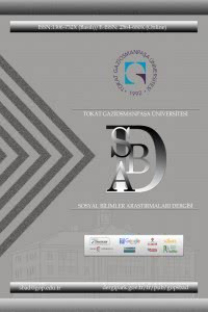Bologna Süreci Ve Türkiye
1990’lı yılların sonlarına doğru Avrupa Birliğinde eğitimde ve özellikle yükseköğretimde bilgi çağı dinamiklerine cevap verme temposunun giderek hız kaybetmesi ve bununla beraber yükseköğretim sisteminin çıktıları olan öğrencilerin istihdam edilebilirliğine ivme kazandırma düşünceleri, AB‘yi 2010 sonuna gücünü bilgi ve bilimden alacak olan bilgi toplumuna dönüştürme girişimlerinin başlamasına neden olmuştur. Bu girişim Bologna süreci olarak adlandırılmaktadır. 1999 yılında 29 Avrupa ülkesinin eğitimden sorumlu bakanlarının Bologna bildirgesini imzalamasıyla başlayan Bologna süreci ile Avrupa yüksek öğretiminde, birbirini anlayan ve karşılıklı güven duyulan bir platform oluşturulmak hedeflenmiştir. Avrupa’nın bu platformdaki etkileşimden enerjisini alan rekabet gücü yüksek ve bilgi temelli bir toplum oluşturmak amacıyla Avrupa yüksek öğretiminin geleceği planlanmaktadır. Her iki yılda bir sürecin değerlendirilmesi amacıyla eğitim bakanları toplanmaktadır. Türkiye bu toplantılara 2001 Prag’da dahil olmuştur. Türkiye, Bologna Süreci oluşumunun içinde yer alarak yükseköğretim bakımından dünyadaki yerini belirlemek istemektedir
Anahtar Kelimeler:
Bologna Süreci, Avrupa Yükseköğretim Alanı, Avrupa Üniversiteler Birliği
Bologna Process and Turkey
To the late 1990s, the comedown in accounting the needs of the dynamics of the information age in education especially in higher education, nevertheless the idea of employing the students, which are the output of the higher educationin EU, caused starting the attemt to transform EU an information society which takes its power from knowledge and science until 2010. this attemp is called Bologna Process. By the aid of The Bologna Process, starting the signing the Bologna declaration by 29 European countries’ Ministers of Education in 1990s, it is aimed to form a platform which has mutual understanding and trust. The future of the higher education of EU is planned to form a competitive and educated society which takes its energy from the interaction of the platform. The ministers of education meet bi yearly in order to evaluate the process. Turkey has benn included to theese meetings in Prag 2001. By participating in the Bologna Process, turkey wants to determine its position in Higher Education in the world.
___
- AB Eğitim ve Gençlik Programları Merkezi Başkanlığı. (2005). Bologna Süreci’nin Türkiye’de Uygulanması Projesi 2004-2005 Sonuç Raporu. Haziran 2005.
- Atalay, S. (2007). Bologna Süreci Bilgilendirme Toplantısı. Celal Bayar Üniversitesi. Manisa. 30.05.2005. http://www.bayar.edu.tr/bologna/Suheyda_Atalay/main_dosyalar/frame.htm#slid e0001.htm erişim:03.09.2007
- Eğitimde Diyalog Socrates Bülteni Dergisi. (2005). Ulusal Ajans Yayını. Sayı. 5. Ankara
- European Commission. (2007). Bologna Declaration On The European Space For Higher Education:Anexplanation http://ec.europa.eu/education/policies/educ/bologna/bologna.pdf Erişim:02.08.2007
- Eurydice. (2007.) “Focus On The Structure Of Higher Education In Europe2006/07. National Trend İn The Bologna Process” ISBN 978-92-79- 05372-6
- Güldür, Ç. Erişim:02.08.2007 http://www.gazihaber.gazi.edu.tr/index.php?menu=view&bık=131
- Hantal, Ö. (2006). “Bologna Süreci Avrupa’yı Eğitecek”. Arıyorum. İtü Gazetesi. İstanbul.
- Neave, G. (2002). “Anything Goes: Or, How The Accommodation Of Europe’s Universities To European Integration Integrates An Inspiring Number Of Contradictions”. Tertiary Education and Management, Volume 8, Number 3/September, Pages 181-197.
- Ulusal Ajans Resmi Web Sitesi. (2007). http://www.ua.gov.tr/portal/page?_pageid=218,42507&_dad=portal&_schema=p ortal Erişim:02.08.2007 YÖK. (2007). a “Türkiye’nin Yüksek Öğretim Stratejisi”, Yayın No:2007-1, Ankara, Şubat. B http://www.yok.gov.tr/bologna_07.pdf Erişim: 05.01.2008 durum değerlendirme raporu 2005-2007”
- ISSN: 1306-732X
- Yayın Aralığı: Yılda 2 Sayı
- Başlangıç: 2006
- Yayıncı: Gaziosmanpaşa Üniversitesi Sosyal Bilimler Enstitüsü
Sayıdaki Diğer Makaleler
Tarihi Gelişim Sürecinde Keman
İnternete Dayalı Araştırmalarda Eleştirel Düşünme Sorunsalı: 21. Yüzyıl Skolastiğine Doğru
Sanal Platformların Lisansüstü Eğitimde Kullanımı: Türkiye Perspektifi
Kerem KILIÇER, Ahmet Naci ÇOKLAR
NLP İlkelerinin Öğrenci Algısına ve Başarısına Etkisi
Mehmet TAŞPINAR, Nuriye SEMERCİ, Çetin SEMERCİ, Kaan GÜNEY
İkincil Yazının Oluşmasında Eleştirmenlerin Rolü Üzerine
Okul Kültürü İle Öğrencilerin Şiddete Başvurma Davranışları Arasındaki İlişkiler
Kültürler Arası Farkındalık Yaratmak İçin E-Postayla İletişim
Mehmet Metin ARSLAN, Harun BAHADIR
Bilim ve Sanat Merkezlerinde (BİLSEM) Görev Yapan Öğretmenlerin BİLSEM’e Yönelik Görüşleri
